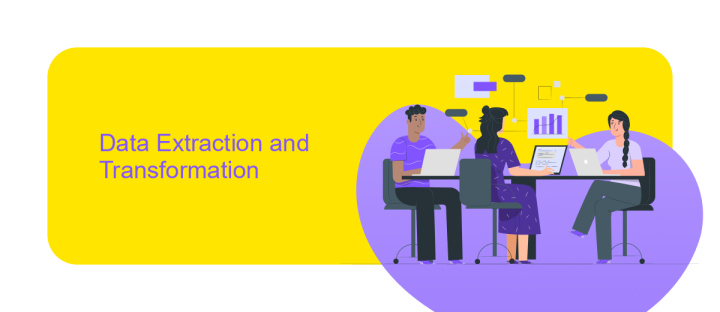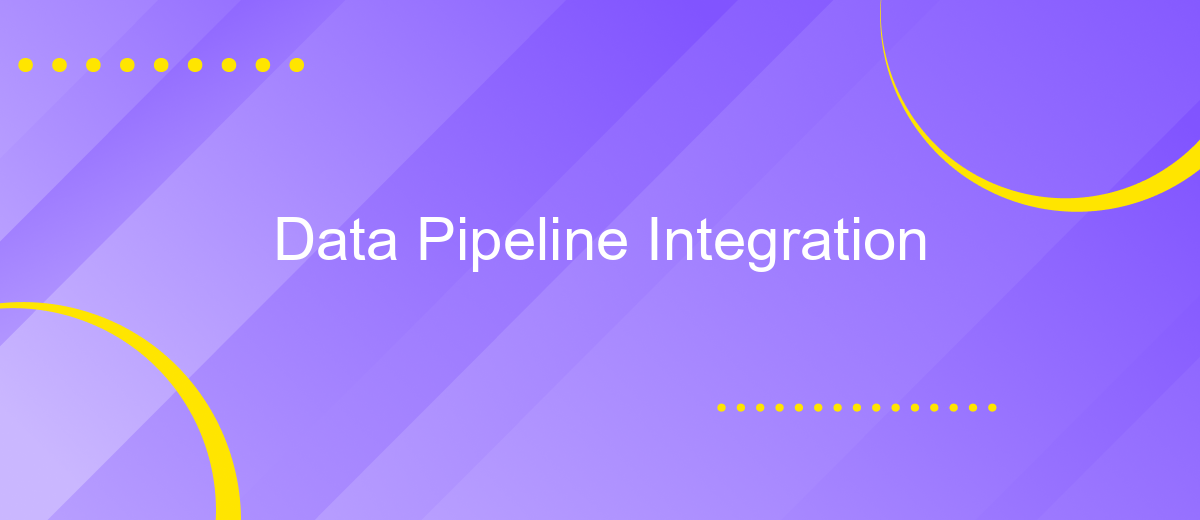Data Pipeline Integration
Data Pipeline Integration is a critical component in modern data management, enabling seamless data flow between disparate systems. By connecting various data sources, it ensures accurate, real-time data availability for analytics and decision-making. This article explores the fundamentals of data pipeline integration, its significance in today's data-driven world, and best practices for implementing efficient and scalable data pipelines.
Introduction
Data pipeline integration is a critical process in modern data management, enabling organizations to seamlessly collect, process, and analyze data from various sources. By integrating data pipelines, businesses can ensure that data flows efficiently and accurately, supporting informed decision-making and operational efficiency.
- Streamlined data collection from multiple sources
- Automated data processing for real-time insights
- Enhanced data quality and consistency
- Scalable solutions for growing data needs
- Improved data accessibility and usability
In today's data-driven world, effective data pipeline integration is essential for leveraging the full potential of data assets. It not only facilitates better data governance but also enhances the overall agility and responsiveness of an organization. As a result, companies can stay competitive and drive innovation by making data-driven decisions faster and more accurately.
Data Extraction and Transformation

Data extraction is the initial step in the data pipeline process, where raw data is collected from various sources such as databases, APIs, and cloud storage. This phase is critical as it ensures the accuracy and completeness of the data being integrated. Modern tools and services like ApiX-Drive facilitate seamless data extraction by providing pre-built connectors and automated workflows. These solutions help streamline the process, reducing the need for manual intervention and minimizing the risk of errors.
Once the data is extracted, it undergoes transformation to make it suitable for analysis and reporting. Transformation involves cleaning, filtering, and aggregating the data, as well as converting it into a consistent format. This step is crucial for ensuring data integrity and making it actionable. ApiX-Drive offers robust transformation capabilities that allow users to define custom rules and automate repetitive tasks. By leveraging such tools, organizations can ensure that their data is accurate, consistent, and ready for downstream processing.
Data Loading and Storage

Data loading and storage are critical components of any data pipeline, ensuring that data is efficiently transferred from source systems to storage solutions for further processing and analysis. This phase involves extracting data from various sources, transforming it into a suitable format, and loading it into a storage system where it can be accessed for future use.
- Extract data from source systems such as databases, APIs, or flat files.
- Transform the data into a consistent format that aligns with the target storage requirements.
- Load the transformed data into the storage system, which could be a data warehouse, data lake, or cloud storage.
Efficient data loading and storage practices are essential for maintaining data integrity, ensuring quick access, and supporting scalability. By leveraging automated tools and technologies, organizations can streamline these processes, reduce manual intervention, and improve overall data pipeline performance.
Data Quality and Validation

Ensuring data quality and validation is a critical aspect of any data pipeline integration. High-quality data is essential for making accurate business decisions, improving operational efficiency, and maintaining regulatory compliance. Without proper validation, data can become corrupted, leading to erroneous insights and potentially costly mistakes.
Data validation involves a series of checks and processes that ensure the data being ingested into the pipeline meets predefined standards. This includes verifying data accuracy, consistency, completeness, and timeliness. Implementing robust data validation mechanisms helps in identifying and rectifying issues early in the data processing lifecycle.
- Accuracy: Ensuring the data is correct and free from errors.
- Consistency: Maintaining uniformity in data formats and structures.
- Completeness: Ensuring no critical data is missing.
- Timeliness: Making sure data is up-to-date and available when needed.
Incorporating automated data quality checks and validation rules within the data pipeline can significantly enhance data reliability. By continuously monitoring and validating data, organizations can mitigate risks, improve decision-making, and ensure that their data-driven initiatives are built on a solid foundation.
- Automate the work of an online store or landing
- Empower through integration
- Don't spend money on programmers and integrators
- Save time by automating routine tasks
Monitoring and Maintenance
Effective monitoring and maintenance are crucial for ensuring the seamless operation of data pipelines. Regularly tracking the performance of your data pipeline helps to identify bottlenecks, errors, and inefficiencies. Implementing automated monitoring tools can provide real-time alerts and detailed reports, enabling quick resolution of issues. It's essential to establish a robust logging system to capture and analyze logs, which can help in diagnosing problems and optimizing performance. Regular audits and health checks should be conducted to ensure data integrity and compliance with organizational standards.
Maintenance involves periodic updates and optimizations to keep the data pipeline running smoothly. This includes updating software components, scaling resources to handle increased data loads, and refining data transformation processes. Utilizing integration services like ApiX-Drive can significantly simplify the maintenance process by automating data transfers and synchronizations between various applications. ApiX-Drive offers a user-friendly interface and extensive support for multiple platforms, making it easier to manage and maintain complex data pipelines. Regularly reviewing and updating your data pipeline strategy is essential to adapt to changing business needs and technological advancements.
FAQ
What is a data pipeline integration?
Why is data pipeline integration important?
What are the common challenges in data pipeline integration?
How can I automate my data pipeline integration?
What is ApiX-Drive and how can it help with data pipeline integration?
Apix-Drive is a universal tool that will quickly streamline any workflow, freeing you from routine and possible financial losses. Try ApiX-Drive in action and see how useful it is for you personally. In the meantime, when you are setting up connections between systems, think about where you are investing your free time, because now you will have much more of it.


